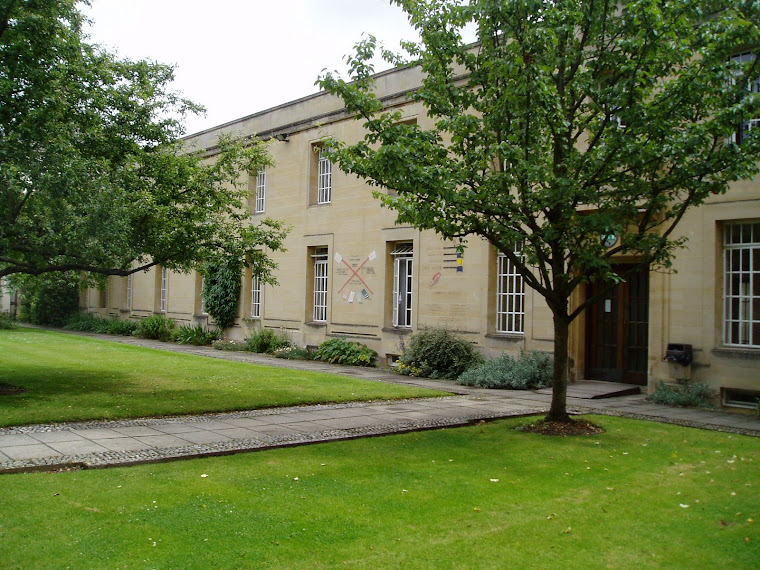In many ways I admire Steve Chalke for his energy, enthusiasm and enterprise. He has achieved a great deal in a number of spheres. Steve is a preacher, writer, media presenter, entrepreneur, educationalist, social activist and church leader. One could mention other areas of activity and expertise. Steve has an impressive CV, and an MBE, gained in 2004 for "services to social inclusion". In fact Steve is now a UN special adviser.
The Oasis college programme has produced some trained and competent students who have used their talents in church and social spheres of service. Having trained at Spurgeon's College and exercised a ministry within the Evangelical Baptist family and the wider Evangelical community, Steve has had success in youth leadership and Christian mission, particularly in urban areas. In recent years, however, Steve has engaged in various controversial positions, notably in regard to the atonement, specifically the doctrine of penal substitution, and support for established, some would say monogamous, same sex relationships. This has resulted in criticism, concern and contentious opposition. Steve has been labelled a heretic, and some Evangelical churches now regard him as persona non grata.
In this month's issue of Christianity, Steve has decided to wade into the biblical inerrancy controversy, which has been going on in theological colleges, seminaries and divinity faculties for years and years. SC wishes churches and his fellow Christians to wise up to certain realities and to face the truth, as he sees it, about the Bible, interpretation and the canon of Scripture. Steve is brave to tackle this subject, but he may find that he has alienated even more conservative Evangelicals, those who support, prayerfully and financially, his Oasis ministry.
It seems that SC wishes to distance himself from Christian fundamentalists and conservative Christians who hold to the verbal inerrancy of the Bible, the penal substitutionary theory of the atonement, intolerance to homosexual marriage and homosexual lifestyles, scepticism and even opposition to the ecumenical movement, conservative views on chastity, media worldliness and Vanity Fair values infiltrating the body of Christ.
SC has worked within the media, on television and radio, so that he enjoys a high profile as a contemporary Christian leader. But in developing his social, media and charitable status, certain concerns and criticisms have strengthened the opposition to his Christian appeal. Some churches and conservative evangelical Christians are considering withdrawing financial support and funds from Oasis projects.
To some SC is "the worst type of trendy vicar" and spokesman for a compromised and sub-Christian culture, as he, according to this view, has sold out to social forces and worldly values in order to advance his career and social influence. These opponents would berate him for bringing liberal or post modern thinking into the church, contaminating the church with carnal views on homosexuality and erroneous interpretations of the Bible.
Others, however, welcome his higher profile and ability to get stuck into tough issues in order that the Christian community scratches where people are itching, in making a difference in a harsh world.
Life is fragile and it should be handled with prayer. I pray that those who criticize Steve will be as diligent in their prayers for his ministry and influence for good.
The Oasis college programme has produced some trained and competent students who have used their talents in church and social spheres of service. Having trained at Spurgeon's College and exercised a ministry within the Evangelical Baptist family and the wider Evangelical community, Steve has had success in youth leadership and Christian mission, particularly in urban areas. In recent years, however, Steve has engaged in various controversial positions, notably in regard to the atonement, specifically the doctrine of penal substitution, and support for established, some would say monogamous, same sex relationships. This has resulted in criticism, concern and contentious opposition. Steve has been labelled a heretic, and some Evangelical churches now regard him as persona non grata.
In this month's issue of Christianity, Steve has decided to wade into the biblical inerrancy controversy, which has been going on in theological colleges, seminaries and divinity faculties for years and years. SC wishes churches and his fellow Christians to wise up to certain realities and to face the truth, as he sees it, about the Bible, interpretation and the canon of Scripture. Steve is brave to tackle this subject, but he may find that he has alienated even more conservative Evangelicals, those who support, prayerfully and financially, his Oasis ministry.
It seems that SC wishes to distance himself from Christian fundamentalists and conservative Christians who hold to the verbal inerrancy of the Bible, the penal substitutionary theory of the atonement, intolerance to homosexual marriage and homosexual lifestyles, scepticism and even opposition to the ecumenical movement, conservative views on chastity, media worldliness and Vanity Fair values infiltrating the body of Christ.
SC has worked within the media, on television and radio, so that he enjoys a high profile as a contemporary Christian leader. But in developing his social, media and charitable status, certain concerns and criticisms have strengthened the opposition to his Christian appeal. Some churches and conservative evangelical Christians are considering withdrawing financial support and funds from Oasis projects.
To some SC is "the worst type of trendy vicar" and spokesman for a compromised and sub-Christian culture, as he, according to this view, has sold out to social forces and worldly values in order to advance his career and social influence. These opponents would berate him for bringing liberal or post modern thinking into the church, contaminating the church with carnal views on homosexuality and erroneous interpretations of the Bible.
Others, however, welcome his higher profile and ability to get stuck into tough issues in order that the Christian community scratches where people are itching, in making a difference in a harsh world.
Life is fragile and it should be handled with prayer. I pray that those who criticize Steve will be as diligent in their prayers for his ministry and influence for good.


































































































































1 comment:
Now Steve's Oasis has been removed from the Evangelical Alliance, which will prove costly and problematic in many ways. It comes as no surprise to the conservative wing of the EA.
Post a Comment